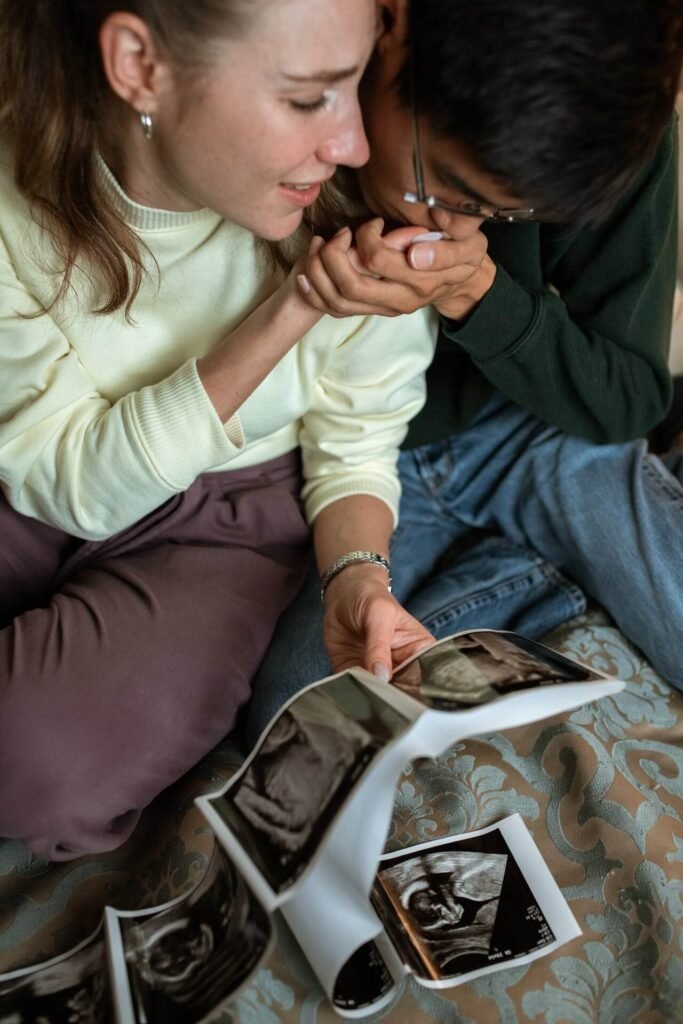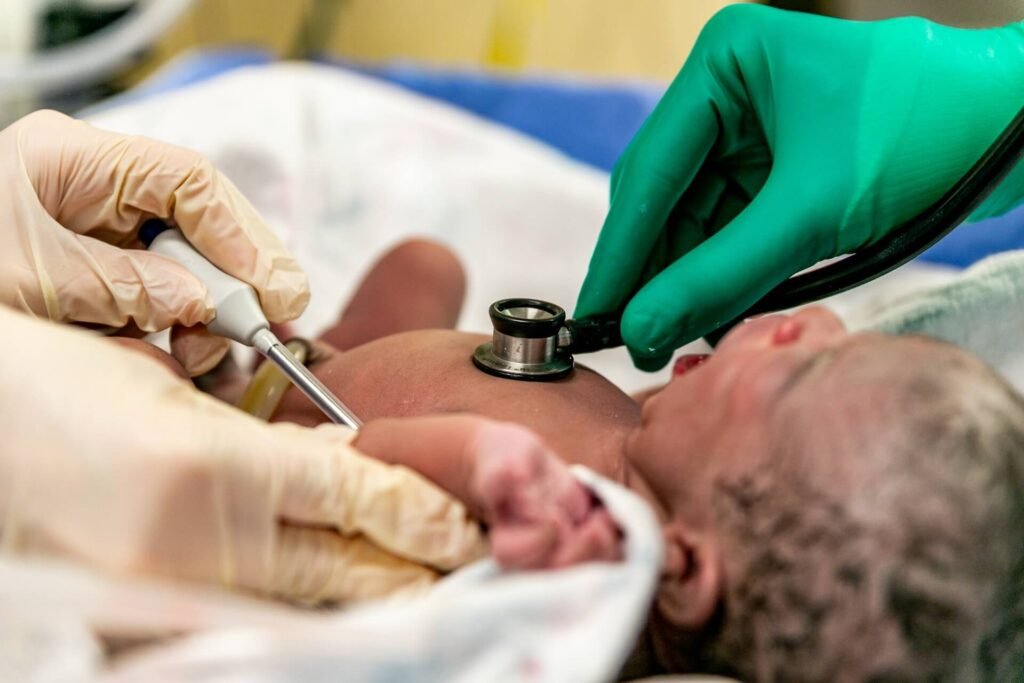Hey there, soon-to-be dads! If you’re gearing up to embark on the rollercoaster journey of fatherhood, you’re in for a wild ride – and it’s not just your partner’s life that’s about to change.
In this article, we’re diving deep into the world of pregnancy, including why it’s called the “four trimesters,” the fascinating hormonal changes that occur throughout this adventure, and what to expect in the four trimesters – the three trimesters of gestation, and the last trimester, ie, the first three months postpartum. So, grab a cup of coffee and let’s get started on the ultimate dad guide to the four trimester
Why Four Trimesters?
Traditionally, we’ve all been taught that pregnancy consists of three trimesters, each spanning three months. But in recent years, there’s been a lot of buzz about the “fourth trimester.” So, why the extra trimester? Well, this fourth one isn’t about the baby growing in the womb but about what happens after your little one makes their grand entrance.
The fourth trimester, often described as the period within the first three months post-birth, is a time of adjustment and transformation for both mom and baby. This time is crucial for bonding, recovery, and getting used to the new addition to the family. As a dad-to-be, understanding this fourth trimester is just as vital as comprehending the first three, as it’s your time to shine and offer invaluable support.
The First Trimester
This is the time when the tiny miracle inside your partner begins to develop. Morning sickness may become a familiar guest, bringing cravings and food aversions. But don’t worry, this is just a sign that your partner’s body is working hard to create a safe and nurturing environment for your baby.

Things to expect
- Fatigue and mood swings: Hormonal changes can cause fatigue, mood swings, and heightened emotions. Be patient, supportive, and offer your partner extra affection and kindness.
- Rapid physical changes: Breasts may become tender, and your partner may experience nausea, vomiting, and increased urination.
- First prenatal checkups and scans: These appointments are crucial for monitoring your baby’s development and addressing any concerns.
Your role as Dad
- Offer emotional support and understanding.
- Be physically present and help with household chores.
- Learn about pregnancy and baby development.
- Attend prenatal appointments with your partner.
Do check out our detailed article on the first trimester of pregnancy.
The Second Trimester
Morning sickness usually subsides, and your partner may experience a surge of energy. Your partner’s body is undergoing significant changes, with the baby’s movements becoming more pronounced, and you might even get to feel those first kicks. This is the “golden trimester” where she can finally flaunt her growing baby bump with pride.

Things to expect
- Feeling the baby move for the first time (quickening).
- Increased appetite and weight gain.
- Skin changes, such as stretch marks and acne.
- Sex drive may increase or decrease.
Your role as Dad
- Continue offering emotional and physical support.
- Start planning for the baby’s arrival.
- Start looking at baby names!
Have a look at our detailed articles on the second trimester of pregnancy and the tests and common concerns during second trimester to be an awesome partner!
The Third Trimester
As the due date approaches, excitement and anticipation build up. Your partner may experience Braxton-Hicks contractions, and the baby may adopt a head-down position for delivery.
Things to expect
- Difficulty sleeping due to back pain and heartburn.
- Increased swelling in the ankles and feet.
- Fatigue and mood swings may return.
- Frequent urination and possible leaking of amniotic fluid.

Your role as Dad
- Be patient and understanding as your partner prepares for birth.
- Pack your hospital bag and prepare for the big day.
- Review your birth plan with your partner.
- Be prepared to offer comfort and support during labour and delivery.
Now, we reach the fourth trimester – the time when your world as a dad-to-be will undergo a transformation of its own. Here, it’s less about your partner’s hormones and more about understanding the changes she’s experiencing and providing unwavering support.
The Fourth Trimester: Dad Guide
The fourth trimester begins the moment your baby is born and continues for the next three months. During this period, your baby is adapting to life outside the womb, and your partner is recovering from childbirth – both physically and emotionally.

Your Role as Dad
- Physical Recovery: In the days and weeks following childbirth, your partner’s body is healing. It’s essential to encourage her to rest and take care of herself. Offer to take care of household chores, prepare meals, and ensure she gets the downtime she needs. This support helps her recover faster and feel more like herself.
- Emotional Rollercoaster: The postpartum period can be an emotional rollercoaster for many women. Hormonal fluctuations, sleep deprivation, and the challenges of new motherhood can lead to mood swings and moments of vulnerability. Your role is to be patient, understanding, and a source of emotional support. Listening and reassuring her that you’re in this together can make a world of difference.
- Breastfeeding and Baby Care: If your partner chooses to breastfeed, this can be an intense but incredibly rewarding experience. Be there to support her by helping with breastfeeding positions, providing water and snacks during nursing sessions, and learning about infant feeding cues. If you’re both opting for formula feeding, be an active participant in feeding sessions.
- Bonding Time: Encourage skin-to-skin contact between your partner and the baby. This skin-to-skin time promotes bonding and can help regulate the baby’s body temperature and breathing. You can also engage in skin-to-skin contact with your little one – it’s not just for moms!
- Teamwork: The fourth trimester is a time for teamwork. Diaper changes, soothing the baby, taking turns for night feeds, and sharing household responsibilities are all part of the package. Being actively involved in caring for your baby can strengthen your bond as a couple and as parents.
By understanding the significance of the fourth trimester, and using this Fourth Trimester Dad Guide, you can be the supportive, caring, and loving partner your wife needs during this time. Your involvement during these crucial months will set the stage for a strong and resilient family unit.
Making Memories and Building Bonds
Remember, Dad, you are a vital part of this incredible journey. While the term “four trimesters” might sound like a stretch, it beautifully encapsulates the journey of pregnancy, the birth of your child, and the crucial months that follow. By understanding each stage of pregnancy and the fourth trimester, you can be the best support system for your partner and your new baby.
Enjoy the ride, embrace the challenges, and cherish every moment of this life-changing experience.

Leave a Reply